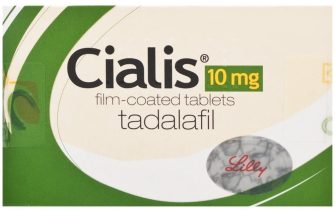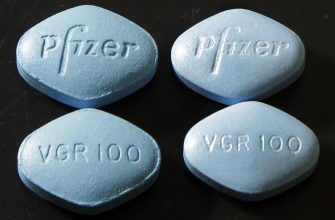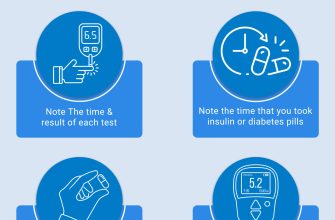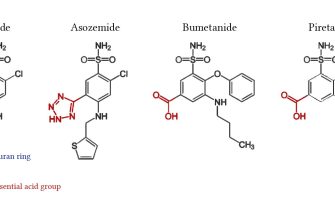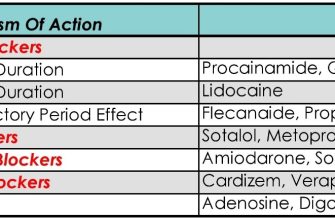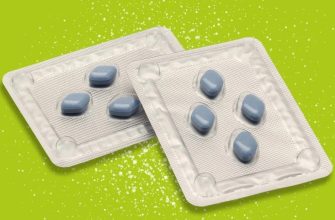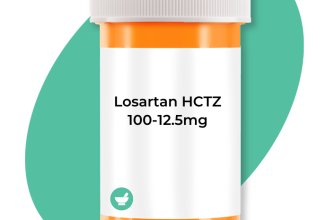Yes, prednisone can raise your cholesterol levels. This effect is a known side effect, and its severity varies depending on factors like dosage and duration of treatment.
Specifically, prednisone can increase LDL (“bad”) cholesterol and decrease HDL (“good”) cholesterol. This imbalance significantly increases your risk of heart disease and stroke. Regular monitoring of your cholesterol levels during prednisone treatment is therefore critical. Your doctor should order lipid panels to track these changes.
Managing this risk involves proactive steps. Discuss lifestyle modifications with your physician. These may include dietary changes focusing on reducing saturated and trans fats, increasing soluble fiber intake, and adopting a regular exercise routine. In some cases, your doctor might also prescribe cholesterol-lowering medications alongside your prednisone to mitigate the impact on your lipid profile. Open communication with your healthcare provider is paramount for effective management.
Remember, the information provided here is for general knowledge and does not constitute medical advice. Always consult your doctor or other qualified healthcare professional for any questions you may have regarding your health or treatment.
- Does Prednisone Cause High Cholesterol?
- Prednisone’s Mechanism and its Effect on Lipid Levels
- Risk Factors Increasing Prednisone-Induced Hyperlipidemia
- Duration of Prednisone Use
- Pre-existing Conditions
- Other Medications
- Lifestyle Factors
- Age and Gender
- Diabetes
- Monitoring Cholesterol Levels During Prednisone Treatment
- Managing High Cholesterol Induced by Prednisone
Does Prednisone Cause High Cholesterol?
Yes, prednisone can raise cholesterol levels. This corticosteroid medication affects lipid metabolism, often leading to increased LDL (“bad”) cholesterol and decreased HDL (“good”) cholesterol. The extent of the increase varies depending on the dosage and duration of prednisone use.
Studies show a significant correlation between prednisone use and elevated triglycerides. Higher doses and longer treatment periods generally result in more pronounced changes in lipid profiles. Regular monitoring of cholesterol levels is therefore crucial for individuals taking prednisone.
Your doctor will likely order blood tests to track your cholesterol while you’re on prednisone. They may adjust your dosage or prescribe additional medications to manage cholesterol if necessary. Lifestyle modifications, such as diet and exercise, play a supportive role in mitigating the impact of prednisone on your lipid profile.
A diet low in saturated and trans fats, rich in fruits, vegetables, and fiber, combined with regular physical activity, can help. Your healthcare provider can offer personalized dietary and exercise recommendations tailored to your needs and health status. Remember to discuss any concerns regarding cholesterol with your physician.
While prednisone offers significant therapeutic benefits, understanding its potential impact on cholesterol is vital for effective management and overall health. Open communication with your doctor ensures proactive monitoring and appropriate interventions.
Prednisone’s Mechanism and its Effect on Lipid Levels
Prednisone, a glucocorticoid, elevates cholesterol levels primarily by increasing hepatic (liver) production of lipoproteins. This occurs through several pathways. It enhances the activity of hepatic enzymes responsible for cholesterol synthesis, like HMG-CoA reductase. Simultaneously, prednisone reduces the body’s ability to clear low-density lipoprotein (LDL) cholesterol, often referred to as “bad” cholesterol, from the bloodstream. This dual action – increased production and decreased clearance – leads to higher LDL levels.
Furthermore, prednisone influences high-density lipoprotein (HDL) cholesterol, often called “good” cholesterol. While the effect is less consistent than on LDL, studies show a tendency toward decreased HDL levels with prednisone use. This further contributes to an unfavorable lipid profile.
The magnitude of these changes varies depending on the prednisone dosage and duration of treatment. Higher doses and longer treatment periods generally lead to more significant increases in LDL and decreases in HDL. Individual responses also differ; some individuals are more susceptible to lipid changes than others.
Practical Implications: Regular lipid profile monitoring during prednisone therapy is recommended. Your doctor might suggest lifestyle modifications like diet and exercise to mitigate the impact on cholesterol. In some cases, additional medication to manage cholesterol might be necessary.
Note: This information is for educational purposes and does not constitute medical advice. Always consult your physician before making any decisions about your health or treatment.
Risk Factors Increasing Prednisone-Induced Hyperlipidemia
Higher prednisone doses significantly increase your risk of developing high cholesterol. Doses exceeding 7.5mg daily for extended periods pose a greater threat. This is because prednisone directly impacts your liver’s ability to process fats.
Duration of Prednisone Use
The longer you take prednisone, the higher your chances of experiencing hyperlipidemia. Short-term use typically poses less risk compared to long-term, chronic treatment. Regular monitoring of cholesterol levels is vital during extended prednisone therapy.
Pre-existing Conditions
Individuals with a family history of high cholesterol or existing metabolic syndrome face a heightened risk of prednisone-induced hyperlipidemia. These conditions already predispose you to lipid imbalances, and prednisone can exacerbate them.
Other Medications
Concurrent use of other medications, especially those known to affect lipid metabolism, can increase the risk. Discuss all your medications with your doctor to assess potential interactions. Some medications can either enhance or interfere with prednisone’s impact on cholesterol levels.
Lifestyle Factors
Unhealthy lifestyle choices like a diet high in saturated and trans fats, lack of physical activity, and smoking significantly worsen the risk. Adopting a healthy lifestyle can mitigate some of the negative effects of prednisone on cholesterol.
Age and Gender
Older adults and women appear to be somewhat more susceptible to prednisone’s effect on lipids. These factors may play a role in how the body responds to the medication’s metabolic effects. Note: Further research is needed to fully understand these nuances.
Diabetes
Prednisone can negatively impact blood sugar control, making individuals with diabetes more vulnerable to high cholesterol. Careful management of both blood sugar and cholesterol is essential for people with diabetes who need prednisone.
Monitoring Cholesterol Levels During Prednisone Treatment
Regularly check your cholesterol levels. Schedule blood tests before starting prednisone, and then at least every three months during treatment. More frequent monitoring might be necessary depending on your risk factors and your doctor’s recommendations.
Your doctor will interpret your results and adjust your treatment plan accordingly. This may include lifestyle modifications, such as diet and exercise changes, or medication adjustments. Be open and honest with your doctor about any symptoms you experience, especially those indicating high cholesterol, like fatigue.
Maintain a healthy diet low in saturated and trans fats. Focus on fruits, vegetables, and lean proteins. Regular physical activity, such as at least 150 minutes of moderate-intensity aerobic exercise per week, is also beneficial. These lifestyle changes support overall health and can help mitigate the effects of prednisone on cholesterol.
Discuss potential medication interactions with your doctor or pharmacist. Prednisone can interact with some cholesterol-lowering drugs. Open communication helps ensure your medications work effectively and safely together.
Remember: Consistent monitoring and proactive management are key to managing cholesterol levels while on prednisone. Don’t hesitate to contact your healthcare provider with any questions or concerns.
This information is for educational purposes only and does not constitute medical advice. Always consult your physician for any health concerns or before making any decisions related to your health or treatment.
Managing High Cholesterol Induced by Prednisone
Monitor your cholesterol regularly. Your doctor will recommend the frequency based on your individual needs. Frequent blood tests are key to early detection of changes.
Dietary changes are crucial. Focus on a heart-healthy diet low in saturated and trans fats, cholesterol, and sodium. This includes:
- Increasing your intake of fruits, vegetables, and whole grains.
- Choosing lean protein sources like fish and poultry.
- Limiting red meat and processed foods.
- Using healthy cooking methods like baking, grilling, or steaming instead of frying.
Regular physical activity is beneficial. Aim for at least 150 minutes of moderate-intensity aerobic exercise per week, spread throughout the week. This could include brisk walking, jogging, swimming, or cycling. Consult your doctor before starting any new exercise program.
Your doctor may prescribe medication. Statins are commonly used to lower cholesterol. Other medications, such as fibrates or bile acid sequestrants, may also be considered depending on your specific situation and cholesterol profile. Always follow your doctor’s instructions meticulously regarding medication dosage and timing.
Consider lifestyle modifications alongside medication. These two approaches work best in conjunction for optimal cholesterol management. Don’t rely solely on medication; active participation in lifestyle changes enhances their effectiveness.
- Maintain a healthy weight. Losing even a small amount of weight can significantly improve cholesterol levels.
- Quit smoking. Smoking damages blood vessels and elevates cholesterol levels.
- Manage stress levels. Stress can negatively affect cholesterol levels. Find healthy ways to manage stress, such as yoga, meditation, or spending time in nature.
Regular check-ups with your doctor are vital. These visits allow your doctor to monitor your cholesterol levels, adjust medication as needed, and address any concerns you may have.


